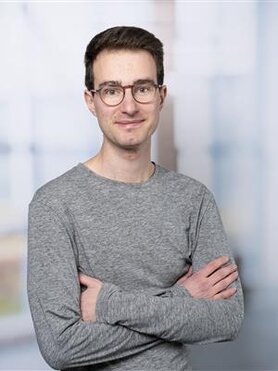

L.D. (Lucas) Warmuth
L.D. (Lucas) Warmuth
Contact
Profile
Since September 2023, Lucas is a PhD candidate at TU Delft’s Hydraulic Engineering department within the Environmental Fluid Mechanics Section. He works under the supervision of Prof. Julie Pietrzak and Dr. Wouter Kranenburg.
In his research, Lucas will consider the physical effects of large-scale sand extraction on circulation, mixing, and transport patterns in the southern North Sea. His focus particularly lies on the Rhine River Plume, which represents one of the largest river plumes in Europe and exhibits unique dynamics. Lucas considers different sand extraction designs, taking into account both the current climatic situation and the influence of anthropogenic climate change through different IPCC scenarios. To do so, he pursues an inter-methodical approach, combining high-resolution 3D numerical hydrodynamic modelling and new field measurements.
Lucas’ research is part of the multi-disciplinary NWO-funded OR-ELSE research program. The program aims at the development of recommendations for more sustainable, ecosystem-based large-scale sand extraction strategies for the southern North Sea. This is motivated by an expected dramatic increase in sand extraction due to climate change, in order to supply sand for large scale sand nourishments for coastal protection.
Academic background
Lucas holds a B.Sc. and M.Sc. degree in physics from Ruprecht Karl University of Heidelberg (Germany), where he specialized in Environmental Physics. During his master studies, he was an exchange student in the College of Earth, Ocean, and Atmospheric Sciences at Oregon State University (USA). There, he could expand and deepen his knowledge in Fluid Dynamics and Wave Mechanics. As an intern in the Coastal Physical Oceanography research laboratory of Prof. James Lerczak he studied mooring data collected off the Oregon Coast to better understand the role of nonlinear internal waves in transporting and mixing waterborne materials in coastal ocean regions. He conducted his master thesis in the Air-Sea Interaction Group at the Institute of Environmental Physics, Heidelberg, where he developed and tested a new, non-stationary, measuring scheme for active IR remote sensing measurements of air-sea gas transfer velocities.
Ancillary activities
-
2023-09-01 - 2025-03-31